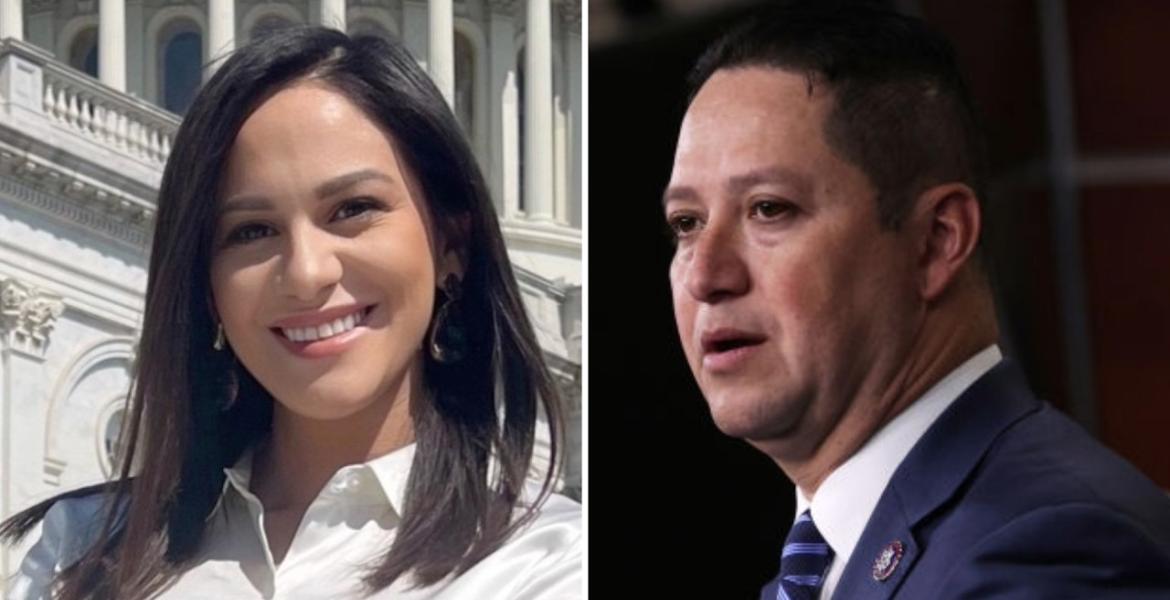The Charter Review Committee held the first of three town hall meetings to discuss changes to the city charter on Tuesday night at the McNease Convention Center.
The city charter is the constitution for San Angelo’s municipal government. According to the city’s website, the charter has been amended 12 times in the past 100 years the last time being in 2007. In November, the council appointed seven citizen members to the committee to review and suggest revisions to the charter.
The Charter Review Committee members are; Trinidad Aguirre; Harry Thomas; Jon Mark Hogg; Kandi Pool; Floyd Crider; Joe Munoz and Jim Turner.
“Any changes to the charter [are] something that the voters must ratify. We, the Charter Review Committee are going to make some recommendations, but before we make those recommendations to the city council I want to listen to you,” Trinidad Aguirre said to the small crowd gathered in council chambers Wednesday evening.
“July 21 is kind of our ‘drop dead’ date. That is the date that we deliver our final proposal to the city council for their ratification to be put on the ballot, then on November 3 you will be able to vote on those items that we are presenting to you tonight. Or if there are some changes we will also incorporate those as well,” he said.
Each committee member presented an item from the charter that is being reviewed.
“We are proposing to go to a four-year term with an election every other year (for council),” said Harry Thomas. “The mayor and SMD 2, 4, 6 beginning in 2017 that would be concurred they were just elected for a two-year term and ratified this morning at city council. SMD 1, 3, 5 beginning in 2019, the members that would be elected in 2016 would serve at a three year term so that we could get back on a schedule to these four year terms.”
By doing this, the committee hopes to save the city money on elections and give candidates more time on the council to make a positive impact and learn the inner workings of the city.
“We also looked at the possibility of putting term limits on council, limiting the council person to two four-year terms, or eight years,” said Thomas. “But we also said maybe we don’t want to lock anyone out if they have had the opportunity to gain some knowledge. So, if they have been away from the council seat for one full term they are able to come back,” Thomas said.
“I was curious to know if you have surveyed the council or mayor’s office to get their impression of a longer term, and how that might or might have affected their decisions,” asked Pat Malloy from the audience.
“I’ve talked to several of the councilmen and I did talk to the mayor as well, I had a cup of coffee with the mayor today to go over these things, and the feeling is mixed,” answered Aguirre. “What we have asked is, do we believe we can get the candidates and do we believe that we can get the right candidates for the position? Would it have impact on their decision at the time? Because, not until you are in office do you truly understand all of the time it takes to be in office. We will definitely take a closer look and get some responses and get back to you."
“One of the things that stuck in my mind was that the council people I have talked to say it takes a little over a year to get a good grasp to learn what the heck you are doing,” Floyd Crider spoke up. “The learning curve is steep, you don’t have to be a rocket scientist, but it’s not really easy either. So, [in a two-year term] when you just get your feet on the ground and you know what you are doing, now you’ve got a campaign for re-election. If you are at a four-year term, by the time you get to your year, year and a half then you have two-and-a-half years where you can actually be most effective. That was the thought that came to my mind. Also I like saving money, so cutting the number of elections you have is a good thing.”
For the May 9 election, the City of San Angelo spent almost $30,000 running the polls.
The description of what the qualifications are for running in a city election in the present charter are vague according to Jon Mark Hogg.
“It doesn’t have a whole lot of guidance; it does have a few qualifications it doesn’t do anything specific in relation to how old someone has to be. It also doesn’t break it down into qualifications to run and qualifications to hold office, which are not necessarily the same thing,” Hogg said.
Hogg said that the committee has reviewed what other cities are using as policy.
“One of the big issues that we have in our charter is that it has a specific section that says that no councilmember can be entered into any contract or profits or allotments of any business with the city,” said Hogg.
“Well if you take that to a hyper-technical reading, the manager of Walmart can’t serve as a city councilmen because if the city buys anything from Walmart. So, what the state law actually says is that there is a threshold at which someone would have a conflict of interest, that would have to be reported I believe that’s having to have a certain percentage having to have about 25 percent ownership in a particular business and a certain dollar amount in that contract.”
Hogg went on to explain that the committee agrees with state law and would like to adhere to that. They also believe it could exclude someone who may have good potential as a councilmember.
“I don’t understand the difference between qualifications for seeking election and for serving. Why would you seek election if you are not qualified to serve,” asked an older gentleman.
A few committee members tried to answer the gentlemen’s question, a few different ways.
“For example with the age requirement, the qualifications would specify as of the date of election or the date of taking office as opposed to for example if someone was not 18 years of age they could actually qualify to run for an office but they could never serve because they would never qualify for the voters so it’s just kind of to break that out the two separate. I don’t have the actual language in front of me,” Hogg said as Aguirre stepped in over his shoulder.
“In a quick answer when you look at it, let’s say that two run for office, you must be a resident of the city you have to live in the district that you are representing and you can’t be a city employee or elected official,” Aguirre said. “So, let’s say you are elected and you move to New York or somewhere else, you are no longer meeting the same criteria you were when you were elected. In this case what we are insuring is that once you are in office you still meet the same criteria that was established when you ran for office.”
“I’ll just make one comment to your question,” said Kandi Pool. “Adding to what Jon Mark said. One of the requests that we got prior to serving was to look at the conflict for interest, and the verbiage that Jon Mark told you was really vague and crazy. What we wanted to do was just to make sure it was a clean sentence about conflict of interest. In doing so that’s really after your serving that the conflict of interest, whether an employee of Walmart or you’re an owner, obviously. Once you are serving that conflict of interest really comes into play on different times through maybe a four year term, and so the clarification to of the language “in conflict of interest” was also a change for retaining the office.”
Charlotte Farmer was in attendance, and spoke up regarding qualifications.
“I would think that qualifying once that I gained office, that to qualify I could apply to Shannon hospital while in nursing school, but I couldn’t be hired for that job until I passed my nursing test in Fort Worth, that would be required,” said Farmer. “I think the same holds true for Realtors. They have to qualify and have to have so many hours of education to continue doing business with the public. Teachers have to recertify and have so many hours of education to continue teaching. I think the same idea should be married in your council members. Making decisions for your city should re-qualify and recertify with so many years of education to continue doing the job to stay fresh and new.”
Currently council pay is $41.67 per month and an even $50 per month for the mayor. Compensation for the council has not been updated since 1947. According to Pool, when talking with council members, she found that the majority spends an average of 15-20 hours per week on city business. The proposal is to give council $300 monthly and the mayor $350. This was an issue last time around in 2007 and the citizens were not in favor of it as it failed at the polls.
“I agree that it’s time and I don’t understand why it has taken this long,” said Denise Barber. “I think for you to sell this to the public, budget is a very sticky, painful subject; I would encourage you to get information from benchmark communities and also I think we need in emphasize the work that they (council) put into this is a job, just like our commissioner’s court.”
Pool said she did talk with Abilene and Midland. “Abilene pays zero dollar zero,” Pool said. “Midland pays $100 a month.”
“If this increase in salary does not increase our taxes,” said Terry Campbell. “I’m in favor of it; if you can somehow figure out how to work it into the budget without raising our taxes, go for it.”
“We know that’s impossible,” said Aguirre. “When you take a look at a city, the way a city is operated is based on the income from the citizens, so the percentage would be so minute. We did get with the financial department with the city, the dollar value is still very low with the numbers that Kandi (Pool) presented it is within the budget. To answer your question we are not talking about raising taxes. But you have to understand that’s how a city operates is through the income from the different entities.”
Harry Thomas said that the increase in pay for council would be a “drop in the bucket “of a little over $22,000.”
“Just a few items ago you were working so hard to save us money on elections and here we find you squandering that sum on these extravagant salaries,” R.A. Cantrell joked. “But I do have a serious question. Is there another manner in which citizens can bring a referendum item toward charter revision other than through this committee and council approval?”
Aguirre asked for Charlotte Farmer’s help on that answer.
“I believe it requires signatures,” she said. “Of the last percentage of the election, there would be a certain percentage it would take to do referendum to get something in the vote for the people, it would be a petition.”
Cantrell asked that at the next meeting something be brought showing how this committee arrangement was established and what the alternatives might be to making a referendum.
Allowing for special elections to fill a vacancy on the council and clarifying the language in the charter regarding it would bring the charter in compliance with state law. There was no public thought or comment on that item.
The council hires a city manager to serve as the chief executive of the city government, making this a position of power in San Angelo. The city manager advises council on their decisions and is ultimately responsible for carrying out the council’s wishes.
“There are six council districts in the city and then the mayor,” said Crider. “The idea is that it should take a majority out of the districts in order to remove the city manager, and then the mayor would endorse that making the vote a 5-7 instead of a 4-7. The other thought I had personally was that when you have an individual that you selected for this particular position. The city manager in our town is more powerful than the city council instead of the other way around. When you go through such an arduous process in doing so it should be a super majority to remove them and more than half of the districts that are in the city should be involved in that. It gives him or her the ability to work in the office without looking over their shoulder all of the time.”
The initiative and referendum process is in question. The committee seeks to clarify the language and proposes the change include a six-month minimum before changing any ordinance established through an initiative and referendum unless it is approved by a super majority vote of council.
“What we are trying to do is make sure that everything that is passed by the city council is given enough time to be a process to vet well and then make a change, rather than make a change prior to that time,” said Aguirre.
There were also some items that were in conflict with state law according to Harry Thomas. “We’ve changed that so it will be more in line with what the state law says.”
Last but not least, was the reoccurring issue of electing police chief or appointing one. This issue resurfaces every time there is a charter review, as it did in 2007.
For some the argument here is that an appointed police chief would be, in theory, more qualified for the position being appointed to the position would mean you earned your way there, climbing the ranks so to speak. A lot of people will say that the system of elections San Angelo utilizes now is not broken, why fix it?
Then there are others who have a more complex view on it, and those that have first-hand knowledge of what it’s like to work under both an elected police chief and an appointed police chief, like retired SAPD officer Johnny Rodriguez.
“I have 32 years and 2 months with the department. I have worked for both appointed and elected chiefs, and again I would reiterate that we are the only city in Texas that does this,” Rodriguez said to the committee.
“Everybody else seems to think it works better to have an appointment. I heard comments in some of the mayoral forums that the people are getting to pick the most qualified person; the people are picking the most charismatic person. It has nothing to do with qualifications. The qualifications are that you have to live here and be 18 years old, that’s what you have to be qualified for.
“I worked for six chiefs in this city, of those six chiefs at the time that they were first elected; none of them would meet minimum qualifications to be appointed anywhere in the state of Texas. So, no we are not picking the most qualified we are picking the most popular, that’s my opinion.
“On the other hand, having worked for the city around city management and around city councils I would be very leery of allowing the council to be able to make a decision as to terminate a chief after they get this, they go through a vetting process if you did turn it over to an appointed position; simply because they didn’t like this guy, didn’t like the way he was doing things or didn’t like the way he spent the money. “There has to be some sort of cushioning if it were to be brought forth and be an appointed position. My personal opinion having worked for both is that you can say what you want but in my opinion, we are picking the most popular person, not the most qualified,” Rodriguez said.
Aguirre says the committee has been working on examining the charter issues for about three months, and that adding agenda items is unlikely, but not too far out of question should something arise of grand importance.
“We will stay with the agenda because what we want to do is present the same data to all of the three town hall sessions. But, I don’t want to back myself into a corner so if something comes out that is absolutely required we will change it. One of things that had come up at one time is should we go to nighttime meeting,” Aguirre said referring to city council meetings. “But at this point what we’ve heard from the voters out there is that they are pleased with what we’ve got… we don’t know which way they are gonna vote. It’s up to them.”
He also indicated that the committee will be available to speak at social gatherings or organization meetings about the charter upon request. The next town hall meeting with the Charter Review Committee is on June 1, 5:30 p.m. at Lincoln Middle School.
Subscribe to the LIVE! Daily
Required






Comments
Listed By: Doctor Ding-bat
You can put all that other stuff on the ballots and give it a whirl, but the Police Chief issue will never pass a vote to do away it... Look back in history how many times it's been attempted and how many times it's been defeated. Why ? Also look back in the history of city leadership. Voters know they are better off trusting a pocket full of poisonous snakes than having any trust in current and past leaders tied with the city. This high powered position is about the one thing left that voters have complete control over who is named to fill that position, if left up to the city government to make that decision, it will be a trojan horse like has been handed to them hundreds of times over the past many years and the nonsensical decisions made by the elite few.......
- Log in or register to post comments
PermalinkPost a comment to this article here: